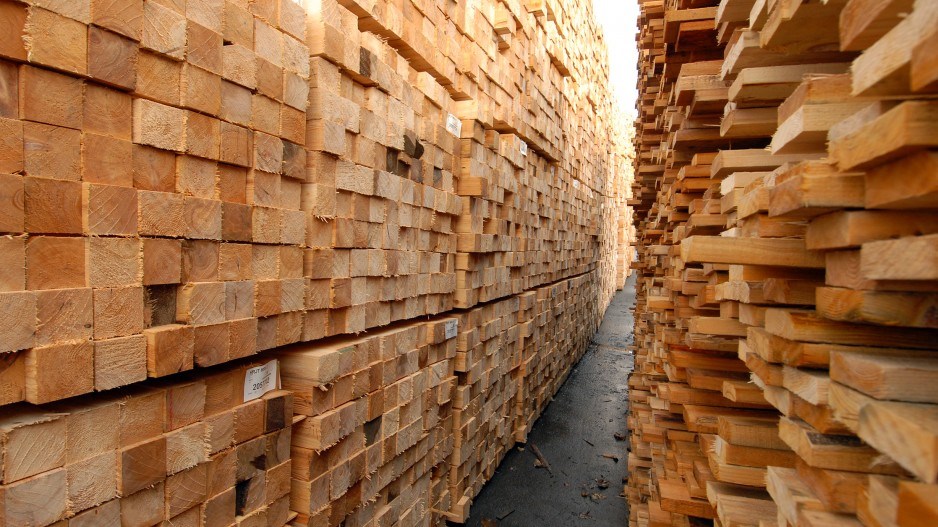Canadian forest companies are no longer debating whether they will be hit with a softwood lumber duty, but how much pain the duties will cause, forest products analyst Paul Quinn told an international wood products conference Thursday.
Although Canadian Prime Minister Justin Trudeau and U.S. President Barack Obama told negotiators last March that they have 100 days to resolve the lumber impasse between the two countries, Quinn said that mid-June deadline is likely to pass with no resolution.
“I am pretty pessimistic on them finding a deal,” he said. “The history on this file is very difficult, and there are lots of issues.”
Quinn, forest products analyst for RBC Dominion Securities Inc., was speaking May 5 at the Global Softwood Log and Lumber Conference in Vancouver.
Quinn’s remarks came one day after Canadian forestry leaders told the House of Commons Standing Committee on International Trade that the industry is prepared to work with Ottawa to defend itself against potential U.S. sanctions.
Canada and the U.S. have fought four lumber trade wars since the 1980s. An agreement ending the last dispute expired October 12, 2015. Since then, a one-year standstill on any trade action has been in place. But Quinn expects the standstill to lapse as well.
“You’ll see the one-year moratorium on litigation expire in October which means the U.S. lumber coalition can petition the Department of Commerce to institute anti-dumping and countervailing duties.
He expects duties of about 25% to be in place by earlier 2017 on U.S.-bound lumber shipments.
The imposition of duties will limit Canadian imports, which the American industry expects will increase lumber prices in the U.S. market. That price boost will benefit Canadian exporters and American producers, but Quinn said the duties will eat up all of the price boost and more.
There is a “raging debate” in the Canadian industry now, he said, over how much of the duties will be offset by higher prices.
Quinn added that B.C. forest companies that have been investing in mills in the U.S. will also feel less pain from the duties. He singled out three companies, West Fraser Timber (TSX:WFT), which has 40% of its capacity in the U.S., Canfor (TSX: CFP), with 28 %, and Interfor (TSX: IFP), with 66%, as best positioned to weather the risk of softwood duties.
The growing softwood threat prompted the heads of Canadian forest companies to appear May 4 before the standing committee, where they urged Ottawa to step up efforts to resolve the dispute.
“With 55 days already passed since the Canadian and U.S. leaders met, it will take industry and political leadership on both sides of the border to move forward to resolve the issues and reach agreement,” said Interfor president Duncan Davies.
Kevin Edgson, president of Montreal-based EACOM, said smaller producers would prefer the certainty of an agreement.
“However, if a reasonable agreement cannot be reached, the industry is prepared to work alongside the Canadian government to defend itself against any potential punitive trade actions brought by the United States,” he said.
They told the committee that the Canadian forest products industry is vital to the national economy, generating 370,000 direct and indirect jobs, and contributing over $20 billion to the national GDP.




